Confederate Truths: Documents of the Confederate & Neo-Confederate Tradition from 1787 to the Present.
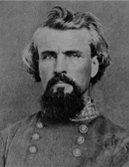

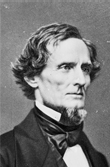
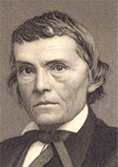


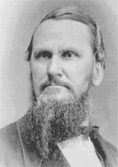
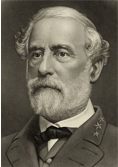
Reconstruction and the Ku Klux Klan explained in the "Confederate Veteran."
Confederate Veteran
, Vol. 30, No. 3, March 1922, pp. 96. The Confederate Veteran was the official publication of the United Confederate Veterans, United Daughters of the Confederacy, the Confederated Southern Memorial Associations, and the Sons of Confederate Veterans.
RECONSTRUCTION AND THE KU-KLUX.
BY JAMES H. M'NEILLY, D.D. NASHVILLE, TENN.
The darkest period of American history was that from 1866 to 1876, devoted by the Congress of the United States to restoring the conquered Confederate States to their place as members of the United States and removing the desolations of war.
It is not the purpose of this article to arouse again the bitterness and strife between the sections that prevailed immediately after the War between the States. It is our privilage and our duty to accept results in the providence of God and to cultivate the spirit of peace and harmony.
Neither is it the purpose to condemn Mr. Lincoln for injustice and oppression in the conduct of the war; not to recall those violations of the laws of civilized warfare such as the making of medicines contraband of war, the refusal to exchange prisoners, when such exchange was dictated by every principle of humanity, and by the harsh and cruel treatment of noncombatants and the destruction of their property. We can give Mr. Lincoln credit for kindly personal feeling in his relations with his fellow men, his tender and sympathetic con-consideration of suffering everywhere, and for theoretical acceptance of the principles of morality and justice. But when we recall the outrages of Sheridan and Sherman in Virginia, Georgia, and North and South Carolina, and that Mr. Lincoln approved of those outrages, it is hardly fair to expect the South to accept him as the highest type of Christian, as the national hero to be admired, and as the Christlike man to be imitated by all true patriots.
It is true that the general sentiment of our country has come to condemn those outrages and the whole Congressional policy of reconstruction, yet within the last few years the tendency of the writers of the North has been to ignore or to condone the wrongs done or to justify them by false statements as to the attitude of the South after the war.
My object is to set forth the truths of history as to the conduct of the war, to vindicate the principles for which the Confederate States went to war, and our readiness at all times for peace and harmony with the Union.
It seems to me from a reading of history that when civilized governments are to be established two principles are in conflict, each laboring for supremacy, the great object being that each shall have its proper place in the life of the people. The first is the principle of authority or autocracy, which asserts the supremacy of a central authority dependent upon physical force. The second great principle upon which the people are to depend for protection against oppression is the principle of justice or righteousness, a spiritual principle, which, in the long run, will resist to the utmost all injustice and wrong-doing. These two principles and their antagonisms were manifest in the negotiations for the establishment of the Constitution of the United States. It was a question between a centralized government and the rights of sovereign States, and the Constitution was a compromise or compact between these two great forces which must be dependent for success on the faithfullness of each party in observing it. But from the very beginning there was a tendency on the part of autocracy to emphasize its rights, and this tendency was especially cultivated in the Northern section, while the South emphasized State Rights. In 1854 the Republican party was organized, the declared purpose of which was to deprive the South of certain constitutional rights, setting aside the decisions of the Supreme Court. In 1860 Mr. Lincoln was elected as the avowed candidate of that policy. Under these circumstances there was only one thing for the South to do, which was to withdraw from the compact. This certain States attempted to do and to form a separate Confederacy. Their commissioners were sent to negotiate with the United States government for a settlement of all questions arising between the two governments. It all finally turned upon reënforcing Fort Sumter, in Charleston Harbor, and after various promises plainly made and unscrupulously broken, the United States government determined to reënforce the fort, and so the war was brought on.
In 1848 Mr. Lincoln was an able advocate in Congress of the doctrine of State Rights; by 1860 he declared that the attitude of a State to the general government was that of a county to a State, and upon this latter idea Congress acted, and its policy of reconstruction was but a carrying out of the wrongs and oppressions perpetrated during the war.
- The Constitution was changed to give all the rights of citizenship to the negro.
- White Southerners and their sympathizers were disfranchized and restrained from interfering with any of the negro's rights.
- The country was divided into military sections, over each of which a general was placed in command, with troops at his disposal to enforce the decisions of the civil tribunals. In a word, it was the legalizing of injustice and corruption before the courts of the country.
The result was that the South was overrun with an army of bummers and carpetbaggers from the North, coming ostensibly to see that the negro had his rights and to install him as ruler over the States. The result was a rule of corruption, of graft, of loot, and of lust that to-day is recognized as the disgrace of all who took part in it.
In a single word, it was the malignant effort of the conquering section of the country, in obedience to a false and fanatical ideal, to destroy an ancient civilization with its claims, its rights, its privileges, its ideals, and its principles. To change an order of nature and bring the highest elements—intellectual, social, religious, and political—into subjection to the very lowest elements that could be used for purposes of corruption and mere material profit. The negroes were organized into secret societies to put themselves in office and carry out the behests of their carpetbag advisers.
Under these circumstances, every principle of self-respect, of honor, and of self-preservation demanded that the South should resist by all means in its power the destruction of its original ideals. It has been charged that the Ku-Klux Klan made the reconstruction policy necessary.
The actual fact is that the Southern people were resorting to various plans to break up the influence of the carpetbaggers over the negroes, especially to break up the secret organizations. When suddenly it was found, by apparent accident, that an organization of young men, for their own amusement, could be used to appeal to the superstition of the negroes and to bring their dread of unseen world powers to protect the white people against their nightly machinations.
Against those unseen powers the carpetbagger was held to be helpless. So the Ku-Klux Klan was regularly organized with a head, the great General Forrest, its various officers and orders, it signs and watchwords to frighten the negroes into submission to the better elements of the community. It is probable that comparatively few suffered violence at its hands. There were two classes that were never spared—a negro assaulting a white woman or a white man stirring up negroes to outrages.
At the end of four years it was seen that the organization had accomplished its purpose, law and order were gradually restored, the better elements of the Northern people coming into the South became helpers in the work of restoration. The negroes gradually took their natural place, and so the organization, in 1870, was officially and formally dissolved by order of the president, General Forrest.
It is true that for several years afterwards there were organizations calling themselves Ku-Klux and committing various outrages, but they were easily subdued.
In 1876 the Southern States that had entered the Confederacy were restored to their original position, and from that day, as a body, they have been thoroughly faithful to the new obligations assumed by them, and in two great wars have shown their loyalty to the Union. In the rape of Panama from Columbia, in the rescue of Cuba from Spain, and in the entrance of the United States in the great World War, the great principle for which the Confederate States contended is recognized as supreme. That is to say, the right of every people to determine their own form of government. So it is that God fulfills his purposes in various ways, and makes the "wrath of man to praise him, while the remainder of wrath he doth restrain."